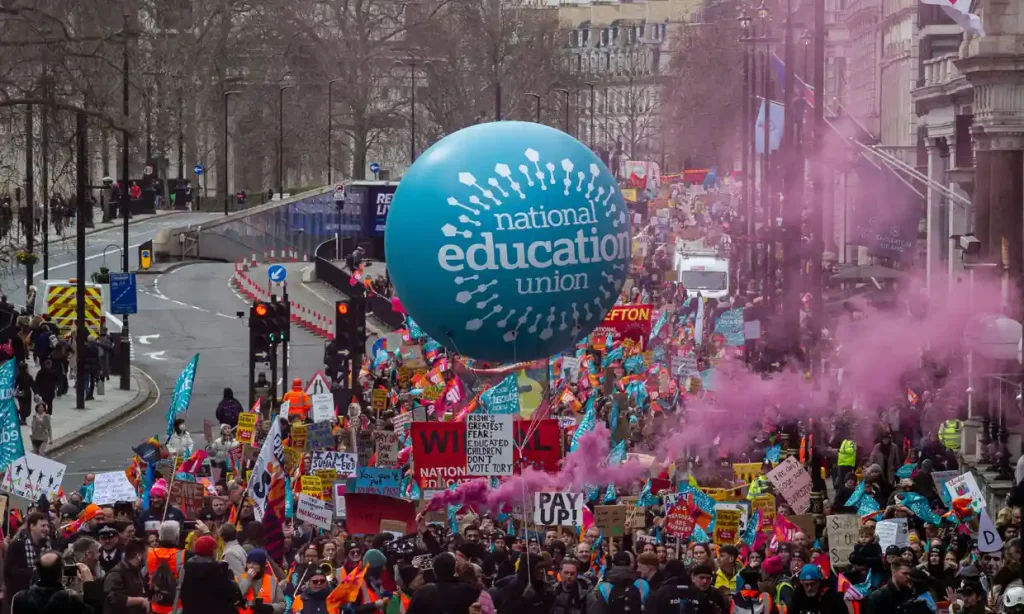Parents in England face another wave of strikes and school closures after teachers belonging to the National Education Union decisively rejected the government’s pay offer.
NEU members voted by 98% not to accept the offer of a £1,000 one-off payment and a 4.3% pay rise for most teachers from September, triggering two further days of strikes in England on Thursday 27 April and Tuesday 2 May.
More than 195,000 members voted in the pay ballot, with only 2% voting to accept.
The rejection of the government’s offer, which is likely to be followed by the other major teaching unions, is a setback for the education secretary, Gillian Keegan, after she entered into six days of intense negotiations last month. The Department for Education’s offer also included a taskforce to reduce teacher workload.
Keegan had said the offer was “final” and the one-off payment would be lost if teachers rejected the deal.
The DfE had procured additional funding for the one-off £1,000 payment that would have been on top of the 5% pay rise already set out for the current school year.
The NEU says it is speaking to headteachers to ensure exam preparation for GCSE and A-level students are not interrupted by the strikes. Students begin sitting A-level and GCSE exams from 15 May.
Three other unions, the NASUWT, Association of School and College Leaders and National Association of Head Teachers (NAHT) are also balloting members on the offer, with the NAHT also asking if they would take industrial action if it is rejected. NAHT members were balloted on industrial action in January but failed to get over the 50% threshold of members’ votes required for industrial action under legislation.


